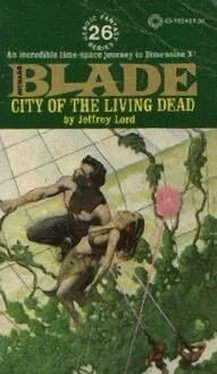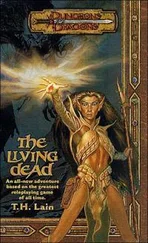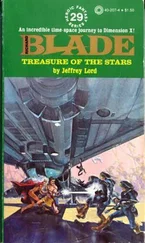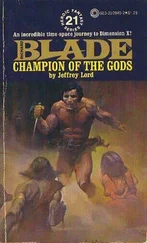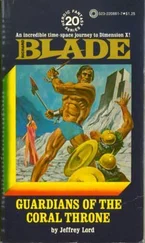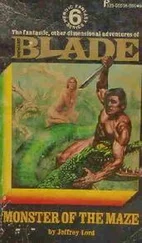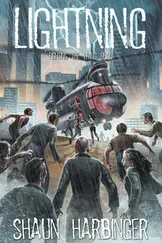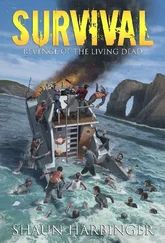Джеффри Лорд - City Of The Living Dead
Здесь есть возможность читать онлайн «Джеффри Лорд - City Of The Living Dead» весь текст электронной книги совершенно бесплатно (целиком полную версию без сокращений). В некоторых случаях можно слушать аудио, скачать через торрент в формате fb2 и присутствует краткое содержание. Год выпуска: 1978, ISBN: 1978, Издательство: Pinnacle Books, Жанр: Героическая фантастика, на английском языке. Описание произведения, (предисловие) а так же отзывы посетителей доступны на портале библиотеки ЛибКат.
- Название:City Of The Living Dead
- Автор:
- Издательство:Pinnacle Books
- Жанр:
- Год:1978
- ISBN:0523401930
- Рейтинг книги:4 / 5. Голосов: 1
-
Избранное:Добавить в избранное
- Отзывы:
-
Ваша оценка:
- 80
- 1
- 2
- 3
- 4
- 5
City Of The Living Dead: краткое содержание, описание и аннотация
Предлагаем к чтению аннотацию, описание, краткое содержание или предисловие (зависит от того, что написал сам автор книги «City Of The Living Dead»). Если вы не нашли необходимую информацию о книге — напишите в комментариях, мы постараемся отыскать её.
City Of The Living Dead — читать онлайн бесплатно полную книгу (весь текст) целиком
Ниже представлен текст книги, разбитый по страницам. Система сохранения места последней прочитанной страницы, позволяет с удобством читать онлайн бесплатно книгу «City Of The Living Dead», без необходимости каждый раз заново искать на чём Вы остановились. Поставьте закладку, и сможете в любой момент перейти на страницу, на которой закончили чтение.
Интервал:
Закладка:
The discussion between the chief and the Aygoon was short, and Blade couldn't hear a word of it. Then the soldiers went into action. They plunged into the ranks of the villagers and one by one hauled out twelve young men. These were promptly dragged off behind the wagons and chained together.
Then the Aygoon clapped his hands together and shouted a single word. A ripple went through the villagers, and the soldiers promptly raised their muskets and arrows. The tension-filled silence lasted another moment; then the chief slowly nodded. Twenty men turned silently and walked back through the gate.
They were back out in a few minutes. Eighteen of them staggered under the weight of bulging sacks of grain. Two carried wooden trays covered with white cloths. On each tray was stacked a pile of small metal bars. Even from a hundred yards away, Blade could not mistake the sheen of pure gold.
The men laid the sacks and the gold at the feet of the Aygoon and stepped back. The Aygoon tapped each bag and the two stacks of gold with his sword, nodded, and started to turn away. Blade could almost feel the tension go out of the air. In spite of the ominous beginning, the day's business was ending peacefully. The Shoba's men weren't the type to provoke a fight purely for their own amusement-just about what Blade would have expected if they were as well-trained as they seemed to be.
Then, in a single moment, the peace came in an end. A small head appeared over the top of the wall in the middle of the section battered by the cannon. The child seemed to recognize somebody among the twelve young men now shackled to the wagons and let out a shrill scream. The Aygoon shouted and dropped into a fighting stance, sword raised in both hands. Then he shouted again, and half a dozen of the musketeers raised their weapons and let fly. Their muskets weren't particularly accurate, but there were enough of them and the range was short. The child's head turned into red paste and dropped out of sight.
A rumble of anger went through the crowd of villagers, punctuated with shrill cries. The rest of the musketeers leveled their pieces, and the archers drew. The chief turned and gestured frantically to his people. Apparently the child's appearance on the wall was a serious breach of one of the Shoba's rules for the tribute-collection days. Only by keeping totally calm could the villagers prevent a massacre.
The angry rumble died into silence. The Aygoon shifted his sword to one hand and seemed to be looking over the people in front of him. Then his free hand shot out, pointing. Again soldiers tramped forward and plunged into the crowd. There was a flurry of movement as they seized someone; then they were coming out into the open again.
They were half carrying, half dragging a slender, darkhaired young woman in a leather skirt and tunic. She cried out as they ripped off the tunic, leaving her bare to the waist.
At the sight of the woman, the village chief quivered all over, as if he'd been struck with a whip. At her cry, he let out a cry of his own, with agony in it as if he'd been stabbed.
«Twana! No!»
The Aygoon said nothing. He merely pointed at the chief. Two of the musketeers came at him, their weapons held high, butt down. The butts swung, and the chief sprawled on the ground, clutching one arm. One of the soldiers kicked him in the groin, and this time there were no words in his scream of agony.
Blade held his breath. He was certain that in the next moment he'd see a bloody massacre as the villagers stormed forward and the soldiers let fly with muskets and bows. Without the iron determination of their chief, what would hold back the villagers?
In that moment Blade would have given an arm and a leg for some weapon that could reach across the distance between him and the Aygoon to strike the man down.
There was no massacre. The musketeers and the archers kept their weapons raised. The cavalry assembled on either side of the villagers, set to ride into the crowd with lances out. The Aygoon stood in the middle of it all, his sword raised, not sparing a look for the man on the ground or the woman his soldiers were now loading into one of the red-curtained wagons. Gradually the villagers' anger and will to fight faded away. Still more gradually they drifted back through the gate into the villager or back out toward their fields and pastures.
Blade didn't wait for the soldiers to form up and march off. He crept away from the wall, then ran through the orchard to the fields. He worked his way through the waist-high standing grain until he came to where he'd seen some of the men at work. As he'd guessed, there were clothes and footgear lying scattered where the men had left them. Just as important, there were tools that could be used as weapons. Blade rapidly snatched up a pair of baggy leggings and a goatskin jacket, then a sickle and a six-foot staff of limber, dark wood. He was on his way back into the orchard before the first villagers entered the field. With luck, they'd assume the Shoba's men had carried off the missing articles along with everything else they'd taken and not bother looking for a thief.
No doubt there were Dimensions where people who behaved like the Shoba's soldiers were really the side Blade ought to be on. Perhaps this was one of them. Common sense told Blade that he should wait a little longer before making an enemy of the Shoba. No doubt making an enemy of the Shoba would make him a friend of the villagers, but was it worth it?
It was. Never mind what common sense told him. Blade had to listen to his instincts. Those instincts told him to strike. They told him that people who kidnapped young men and women, who shot small children and smashed up village walls, who carried off gold and grain, were people who would be his enemies sooner or later.
So why not now?
Chapter 4
The Shoba's men marched only about five miles to the south before making camp for the night. They settled in by a thick stand of scrubby trees and sent out woodcutting parties. By the time darkness fell, a score of fires was blazing cheerfully.
From the shelter of the trees, Blade watched the camp settle down. He smelled wood smoke and roasting meat, heard the drunken laughter of soldiers and ragged trumpet calls. He saw the women's wagons parked in the very center of the camp, but none of the women. Finally, he saw sentries take up positions all around the camp as the fires began to die down.
When Blade saw that, he suspected he wouldn't be able to rescue Twana tonight. He was certain that he could enter the camp and bring her out with surprise on his side. With thirty sentries on the prowl, it would be hard to get that surprise.
Besides, if he struck this close to the village, the Aygoon would probably conclude that the people of Hores were responsible for the incident. Blade and Twana might escape, but not the villagers. The cannon and the soldiers would take a gruesome vengeance on them for what they hadn't done.
Blade wouldn't risk that. He'd wait for a day or two, then move in. By then the soldiers would be a good many miles from Hores, and they'd be less alert. The only other alternative seemed to be doing nothing, and Blade refused to consider that.
The smell of roasting meat from the camp reminded him that he hadn't eaten for two days. He made a brief search of the forest for something edible, found nothing, and resigned himself to sleeping on an empty stomach. The ground under the trees was covered with needles and dead leaves. Compared to sleeping on the bare rock, tonight would be like sleeping on a feather mattress.
Blade found a hiding place well inside the trees, lay down, stretched out, and was comfortably asleep within minutes.
The next morning the soldiers were slow to waken and slow to get on the march. After that, they moved briskly enough and by noon were coming up to a pair of smaller villages. From these they took five men, two dozen goats, and several baskets of fruit. By now it was obvious to Blade that much of the tax or tribute was intended to feed the tax collectors and their animals on the march. The young men and the gold were another matter. The men no doubt went to the Shoba's army and the gold to the treasury.
Читать дальшеИнтервал:
Закладка:
Похожие книги на «City Of The Living Dead»
Представляем Вашему вниманию похожие книги на «City Of The Living Dead» списком для выбора. Мы отобрали схожую по названию и смыслу литературу в надежде предоставить читателям больше вариантов отыскать новые, интересные, ещё непрочитанные произведения.
Обсуждение, отзывы о книге «City Of The Living Dead» и просто собственные мнения читателей. Оставьте ваши комментарии, напишите, что Вы думаете о произведении, его смысле или главных героях. Укажите что конкретно понравилось, а что нет, и почему Вы так считаете.
